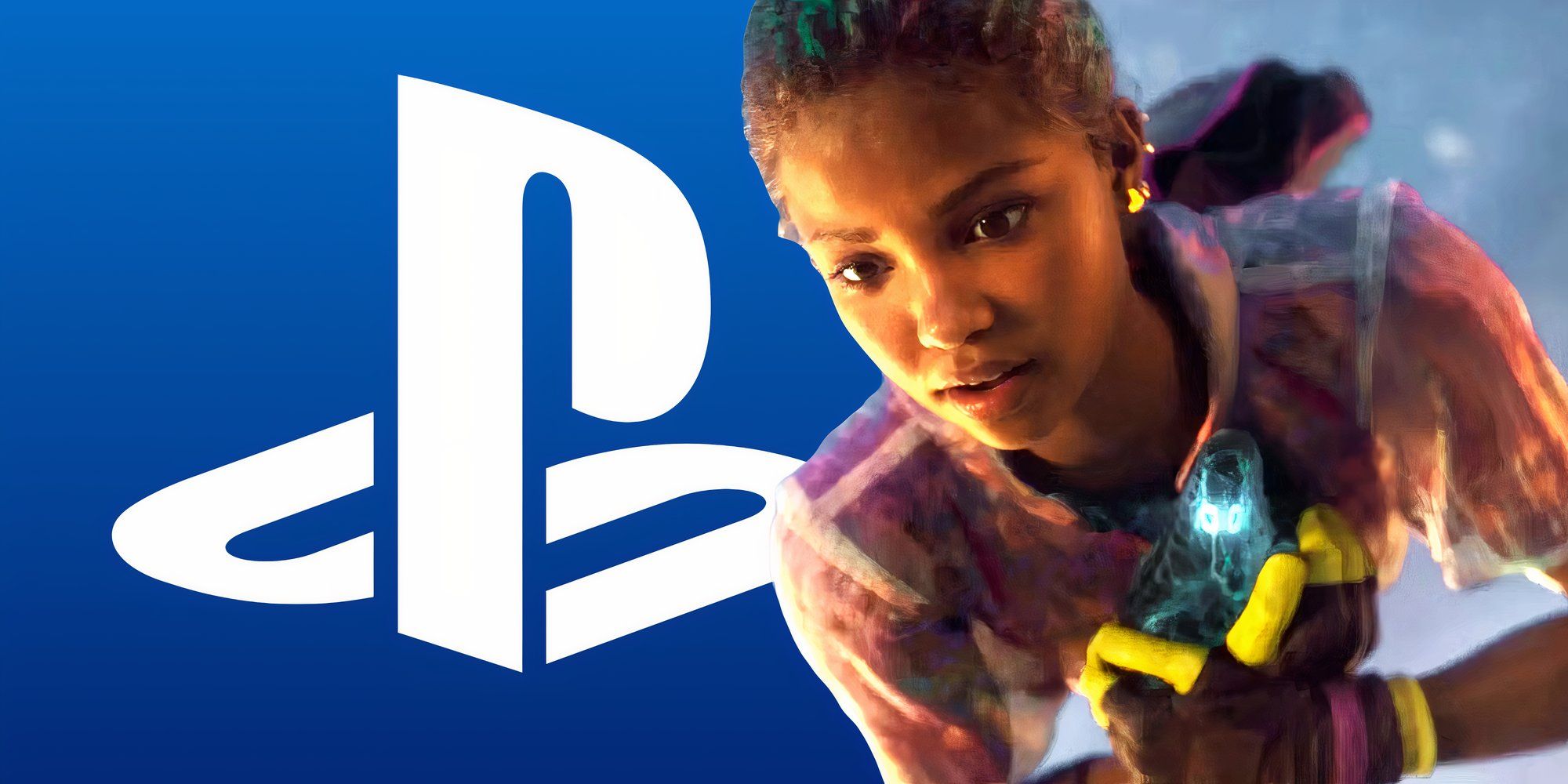
Just before the Academy Awards announce their shortlists, we have a breakdown of the recently released and upcoming documentaries that should be on your radar. These films hail from the year’s biggest film festivals: Berlinale, Sundance, Cannes, Venice, and Telluride — and are equal parts harrowing and uplifting.
Some are already available through streamers like Netflix (Daughters and The Remarkable Life of Ibelin) or PVOD (Piece by Piece), while others are just beginning their theatrical run (Ernest Cole: Lost and Found). These are profoundly political and astonishingly personal works about separation and reunification, justice and representation, memorializing and reliving. They are remarkably relevant works that figure to be talked about for months.
Read on for this year’s 10 hottest documentaries titles that also could be on the Academy’s shortlist.
Black Box Diaries

Few documentaries are as personally harrowing as director Shiori Ito’s startlingly investigative MeToo film Black Box Diaries. A truth-telling wrecking ball to Japan’s patriarchal justice system, the admittedly triggering story recalls Ito’s investigation of her own rape case. Ito was an accomplished journalist in 2015. While intoxicated, she was raped by her boss Noriyuki Yamaguchi, an influential former Washington bureau chief of the Tokyo Broadcasting System and a biographer of former Japanese Prime Minister Shinzo Abe.
Ito filed a police report in 2016, then filed a civil suit in 2017. Each attempt brought frustration. To protect herself, Ito began recording her interactions with prosecutors and police. These audio files, along with the misogynistic cultural and media reactions to her case, form the stiff backbone of an exhaustive film that displays not only the systemic bias against survivors of sexual violence but also Ito’s determination never to be silent.
Black Box Diaries will stream on Paramount+ when released.
Dahomey
Senegal’s entry for the Academy Awards is also one of the year’s top docs. Mati Diop’s Dahomey is an amazingly taut yet surprisingly uncanny 68-minute film, audaciously mixing vérité filmmaking with fictional storytelling, about France’s decision in 2021 to repatriate 26 historical objects — originally stolen from the Kingdom of Dahomey in 1902 — back to present-day Benin. Their return journey over the Atlantic, a symbolic passage in itself, is captured thoughtfully by Diop — who won widespread acclaim for her previous migratory film Atlantiques. Diop gives voice to the 26th item, imbuing it with a grungy voice. He wonders aloud what the return home will be like. Diop also listens to Benin’s young population, who are split by the celebratory repatriation and angered that only a tiny fraction of the thousands of stolen heirlooms were given back. By listening to the voices of objects and desires, Diop makes a documentary alive with cultural redress and national pride.
Dahomey is available to Rent or Buy.
Daughters

The Audience Award winner from this year’s Sundance, Natalie Rae and Angela Patton’s Daughters exceptionally places an important eye on the simplicity of a dance. Because for four little Black girls, having a dance with their fathers isn’t so easy; their dads are incarcerated. As part of a unique program called Daddy Daughter Dance at a Washington D.C. correctional facility, these Black girls can arrive for a single day to share a few normal hours with their fathers. For this story, Rae and Patton make a strong team. Rae quietly films intimate scenes with incredible beauty, while Patton, a founder of Girls for Change, offers inside knowledge of the program as the pair track the anxieties felt by both daughters and fathers as they prepare for their special day. Though Daughters is a straightforward fly-on-the-wall documentary, the real emotion it conjures as generations lock arms and sway is nothing short of heart-shattering.
Daughters is streaming now on Netflix.
Ernest Cole: Lost and Found
From his in-depth documentary Lumumba: Death of a Prophet to his Academy Award-winning James Baldwin joint, I Am Not Your Negro, Raoul Peck has stylishly recalled the seismic figures of Black history. His most recent subject, the legendary South African photographer Ernest Cole, who documented apartheid with such eye-opening clarity that he was rendered a permanent refugee, is delicately voiced by Academy Award-nominated actor LaKeith Stanfield. By virtue of an inventive script inspired by Cole’s own writing and the testimonies of his friends, Peck and Stanfield guide viewers from Cole’s life in South Africa to America — putting his illuminating black and white photography front and center. In America, Cole documented the country’s similar unchecked racism before eventually traveling to Sweden — where a cache of his photography was mysteriously held. What comes into focus is the tragic picture of a man whose statelessness wholly altered his life, subtracting unknown wonders from ours.
No Other Land

Made by a Palestinian-Israeli collective composed of Basel Adra, Hamdan Ballal, Yuval Abraham, and Rachel Szor, No Other Land is a gut-wrenching, relevant film about the decades-long displacement of a Palestinian village that won the top prize at the 2024 Berlinale. Headed by Adra and Abraham, the film captures Adra’s village, which, like many others on the West Bank, lives a painful cycle of facing an encroaching military force, attending court to prove their ownership of the land, briefly avoiding near erasure through media exposure, living in momentary peace, and then watching the encroaching military forces return. Adra and his family filmed these cycles with home video cameras for 20 years. The distressing footage — residents combing through rubble and the forced demolition of a school with children inside — is the incontrovertible proof utilized to show the Israeli government’s dehumanizing tactics to make way for a military training center. While destruction pervades No Other Land, Adra and Abraham’s close-knit, philosophically binding friendship form a momentary balm in the film of the year.
Piece By Piece
If you’re looking for a documentary this year that’ll make you, well, happy, look no further than Morgan Neville’s colorful medium-bending biopic of musician-producer Pharrell Williams. Depicted with Legos, Piece by Piece is a big swing that takes viewers from the artist’s formative years to his chart-topping career in his own words. The film not only reenacts Williams’ memories but also animates his imagination. The first major set piece, for instance, sees Williams swimming with fish deep in the sea and meeting the Roman god Neptune before leaping from the water onto his hometown Virginia Beach pier for a large-scale dance. While reliving Williams’ life, we’re treated to recreations of classic music videos for his jukebox hits: “Drop it Like It’s Hot,” “Get Lucky,” and “Happy” — and receive cameos from Snoop Dogg, Jay-Z, Gwen Stefani, and more for some refreshingly light-hearted entertainment.
Piece By Piece is available to Rent or Buy.
The Remarkable Life of Ibelin

If Piece by Piece was made to bring a smile to your face, the similarly animated The Remarkable Life of Ibelin is almost engineered to pull every tear from your eye. That isn’t to say director Benjamin Ree’s film about Mats Steen, a Norwegian man born with Duchenne muscular dystrophy, isn’t also immensely life-affirming. The Remarkable Life of Ibelin is radical in a different way. It’s initially told from the perspective of recently deceased Steen’s grieving parents, who discover their paraplegic son lived a rich virtual life while playing the video game World of Warcraft. Through Steen’s game transcripts and a rendering of the game’s virtual environment, the film recreates Steen’s animated yet no-less-impactful existence to tell a story of resilience, empathy, and adventure.
The Remarkable Life of Ibelin is streaming on Netflix.
Separated

Another film that intertwines documentary filmmaking with elements of fictional storytelling, Errol Morris’ Separated, an infuriating and deeply researched picture, interrogates the Trump administration’s family separation policy with intense precision. Trump’s dehumanizing “zero tolerance” policy took an unforgiving hold in 2017, primarily targeting asylum-seeking families departing from at-risk countries like Guatemala, El Salvador, and Honduras.
Through interviews with former administration officials, such as Elaine Duke and Jonathan White, and journalist Jacob Soboroff, whose book inspired Morris to approach the subject, we’re given the cruel calculus and daunting reality of the policy. Morris nimbly intertwines their testimony with actors playing migrants going through the process of crossing the border and being separated. The two threads together make for a necessary watch at a precarious moment when Trump is re-entering office.
Sugarcane

The documentary directing award winner from Sundance 2024, Sugarcane is Julian Brave NoiseCat and Emily Kassie’s devastating investigation into the traumatic history of the Canadian Indian residential school system. It’s an inquiry that was incited by the discovery of unmarked graves near St. Joseph’s mission and is bound together by three distinct narratives responding to the burials: Williams Lake First Nation’s interrogation, First Nation’s former chief Rick Gilbert’s painful memories, and the story of the film’s co-director Julian and his father.
The disturbing accounts recall the destructive crimes perpetrated by the school system — forced family separations, physical abuse, and sexual assault — that forever marked or extinguished native lives. These gut-punching testimonies are blended with archival footage of advertising for the schools and a heart-to-heart confrontation between a subject and a clergyman to explain how a community was scarred but never broken. And while Sugarcane can’t possibly heal decades of colonial violence on its own, it puts truth to power to demand a rectification of a still-living past.
Separated is available for pre-order and streaming now on Hulu & Disney+.
Union

Directors Brett Story and Stephen Maing explain the power of collective organizing in their valiant documentary Union, which follows former and current workers of a Staten Island Amazon warehouse attempting to unionize an Amazon Labor Union. Primarily centering on Chris Smalls, a vocal but flawed organizer fired from Amazon in 2020 for planning and attending a walkout over pandemic safety conditions, the film isn’t melodramatic work. Instead, it’s an unflinching, unvarnished record of the slow, methodical road necessary for organizing.
On top of capturing passionate demonstrations, the filmmakers recall lengthy video meetings and acute debates about their approach that even causes one member, Natalie Monarrez, to question the group and Smalls openly. Apart from these internal difficulties, the Amazon Labor Union still must contend with the company’s intense union-busting tactics. Through Story and Maing’s determined filmmaking, Union stands as resolute and unshakeable as its diligent subjects.
Union is available to Rent.

 5 days ago
7
5 days ago
7








 English (US) ·
English (US) ·